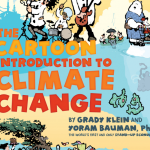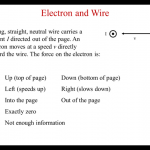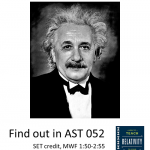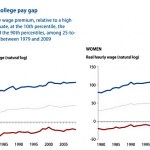education
A few of the recent pieces I've liked:
Sommer Mathis at CityLab: What If the Best Way to End Drunk Driving Is to End Driving?
Dylan Matthews at Vox: More evidence that giving poor people money is a great cure for poverty
Tressie McMillan Cottom in the Washington Post: No, college isn’t the answer. Reparations are.
Mariya Strauss at Political Research Associates: Dark Money, Dirty War: The Corporate Crusade Against Low-Wage Workers
Fred Schulte at The Center for Public Integrity: Why Medicare Advantage costs taxpayers billions more than it should
The NCSE wants to give you a free chapter from the above depicted book. Click here.
Coal miner turned whistleblower Justin Greenwell is at the center of a Huffington Post article investigating how the mining industry cheats the worker safety system. Greenwell, who’s now in a legal battle to get back his mining job with Armstrong Coal, a subsidiary of St. Louis-based Armstrong Energy, tipped off federal mine inspectors that the company was submitting misleading coal dust samples to regulators. The samples are used to determine whether a mine is in compliance with safety and health standards designed to protect miners from black lung disease. According to a 2008 posting from…
The heath effects of occupational solvent exposure don’t always fade with time. A new study has found that years — sometimes even decades — down the road from their last workplace exposure, some workers are still experiencing very real cognitive impairments.
“Cognitive problems are pretty common at older ages and even though they are really common, we don’t know much about what causes them or how to prevent them,” said study co-author Erika Sabbath, a research fellow at Harvard School of Public Health. “There’s a large body of evidence that solvents are this group of occupational chemicals…
For the sixteenth episode of Uncertain Dots, we decided to bring in some guests, Andy Rundquist and Kelly O'Shea for a conversation about standards-based grading. This came up because I'm playing around with this using the same tiered scheme I talked about back in January.
This was a fun conversation, and some interesting ideas came up. I remain kind of boggled by the amount of oral exam time Andy puts in, and I find the notion of goal-less problems intriguing, but I'm not sure I could implement it here.
Some links:
Kelly on goal-less problems
Direct Measurement Video
So, anyway, that was…
Despite our best preparedness efforts, a real-life flu pandemic would require some difficult and uncomfortable decisions. And perhaps the most uncomfortable will be deciding who among us gets priority access to our limited health care resources. How do we decide whose life is worth saving?
There are so many different ways to view such a scenario; so many different values and ethical dilemmas to consider. In the chaos of a pandemic, life-saving allocation decisions would not only impact the patient in question — the repercussions would likely ripple throughout families and entire communities.…
That recent study on active learning continues to generate some press, including a new interview with Carl Wieman about why traditional lectures are problematic. Wieman is pretty blunt about his opinions on the subject, which will come as no surprise to people in the AMO physics community...
Anyway, while most of the rest of the academic nation is into final exams and even graduation parties, we still have two more weeks of class after this one, and we're giving an exam tonight in my intro E&M class. Which means I'm still spending a lot of time thinking about this stuff. Some related…
Rhett and I did the 15th episode of our Uncertain Dots hangout yesterday, commenting on a discussion started by Casey Rutherford about what we would like students coming into college physics to know. We had a slight difference of opinion about physics content, but agreed about the importance of algebra (which is like sunscreen).
I had meant to post this last night, but SteelyKid has made friends with the kids at one of the houses behind ours, so I spent a good chunk of the evening making sure she didn't climb over the fence into their yard. So, instead, you get to wake up with our physics…
Every now and then, I run across a question in class that I genuinely don't know how to answer. If I'm lucky, this happens when I'm prepping a class, rather than when a student asks it live. Like today, when I noticed the above discussion question in my slides (reproduced at the bottom as well for those reading via RSS).
The discussion question itself is perfectly straightforward-- the current in the wire creates a magnetic field, the moving electron interacts with that, and getting the direction of the force is a straightforward right-hand-rule problem. I'll pose this to the class and ask…
Two years ago, domestic workers in Houston, Texas, took part in the first national survey documenting the conditions they face on the job. The experience — a process of shedding light on the often isolating and invisible world of domestic work — was so moving that Houston workers decided they didn’t want to stop there. Instead, they decided it was time to put their personal stories to paper.
The result is “We Women, One Woman!: A view of the lived experience of domestic workers,” which was officially released last month. The anthology features the stories of 15 nannies, house cleaners and…
Over at Xykademiqz, a couple of weeks ago, there was a very nice post about the struggle to get students to write. "Very nice" here means that it's a good description of the problem, not that I'm glad anybody else has to deal with this.
I don't face quite the same thing-- my students generally aren't writing research papers for journals-- but getting senior theses written is often a bit of a chore. And I admit, I'm really bad about pushing students to do this in a systematic way. The problem is that, as I know from personal experience back when I was an undergrad and saber-tooth tigers…
Another week, another hangout with Rhett. In which we actually fielded a couple of questions from readers on Twitter, about the reason for inertia and a kind of meta-question. More audience questions would, of course, be welcome.
A couple of links to things that came up:
Mach's Principle, a past attempt to explain the origin of inertia.
Newton's famous refusal to explain gravity, "Hypotheses non fingo." Sir Isaac was second to none in his mastery of snotty condescension.
Veritasium's buoyancy quiz.
Aatish Bhatia's post about a new meta-analysis of "active learning" studies showing that…
In New York, construction is the deadliest industry, with immigrant workers experiencing half of all occupational-related fatalities. Across the country in California in 2012, transportation incidents took the unenviable top spot as the leading cause of workplace fatalities. In Massachusetts in 2013, it’s estimated that upward of 500 workers died from occupational disease, at least 1,800 were diagnosed with cancers associated with workplace exposures and 50,000 workers experienced serious injury. In Wyoming, workplace deaths climbed to a five-year high in 2012, from 29 in 2011 to 35 in 2012.…
This coming fall term, I'll be teaching Astronomy 052, "Relativity, Black Holes, and Quasars," because the guy who has traditionally taught it (a radio astronomer who studies active galactic nuclei) has to do other courses instead. But I said "Well, hell, I've written a popular audience book explaining relativity. I can teach that." And since I get to make teaching assignments (the one and only positive feature of being department chair), well, I put myself down to teach it. Now, of course, I find myself thinking about ideas for that class, months in advance, when I ought to be working on…
I've seen a few links passed around to this Tom Siegfried post about science literacy, which is mostly a familiar story about how polls show most Americans giving incorrect answers to science questions. The sort of stuff you find in the NSF's Science and Engineering Indicators report. What's getting the social-media attention, though, is this paragraph near the end:
In fact, I’d contend (and have contended) that the problem with science education is not that it fails to inculcate enough facts, but that it tries to inculcate too many. Science classes in high school and intro classes in…
We had a couple of weeks of unplanned hiatus due to sick kids and day care closures, so the superstitious among you might've thought we would never get to the 13th episode of Encertain Dots. Rhett and I are scientists, though, so we powered through:
Given the time of year, this is mostly about end-of-academic-year stuff: exams, intro course curricula, and undergrad research. The undergraduate research symposium I mention a few times is the Steinmetz Symposium, a Union tradition that will happen for the 24th time this Friday. This cancels a day of classes, which is a little annoying, but it's…
While I'm complaining about statisticulation in social media, I was puzzled by the graph in Kevin Drum's recent post about college wage gaps, which is reproduced as the "featured image" above, and also copied below for those reading via RSS. I don't dispute the general phenomenon this is describing-- that the top 10% of college grads earn way more than the average, and the bottom 10% way less, and somewhat less than high school grads-- but I'm baffled about what was done to generate this graph.
Specifically, I'm puzzled by the vertical axis, which is labeled "Real hourly wage (natural log)."…
Via a mailing list, probably via this Tyler Cowen post, an awful statistic about adjunct faculty:
35 years ago there were 44% more tenured faculty than adjuncts. Today there are 76% more adjuncts than tenured faculty, via @chronicle
— Ángel Cabrera (@CabreraAngel) April 25, 2014
This is awful in two ways. First, it's obviously a sad comment on the state of the college teaching profession. More importantly, though, it's a classic abuse of statistics, using a really confusing presentation of the numbers to exaggerate an effect that doesn't really need it.
Here, let's try this as a poll, since…
A collection of miscellaneous stuff with an academic inclination from the past week or so:
-- We gave an exam last night in introductory E&M (I'm teaching one of five sections this term), so we've spent a lot of time this week on exam review. One thing that might be worth mentioning here is the way I run review sessions, which I don't think is entirely original to me, but which generally gets a "Huh. That's a good idea." when I explain it to other faculty, so wherever I got it from isn't well known.
What I do is: at the start of the review session (either a regular class period given over…
The last couple of days have been ridiculously hectic, but Rhett and I did manage to record another episode of Uncertain Dots, our twelfth:
This time out, we talk about labs, undergrad research, kids doing chores, weather, student course evaluations, and I didn't really rant about superheroes. Relevant to the weather thing, I offer the "featured image" up top, showing last night's snow at Chateau Steelypips. Spring in New England, baby!





